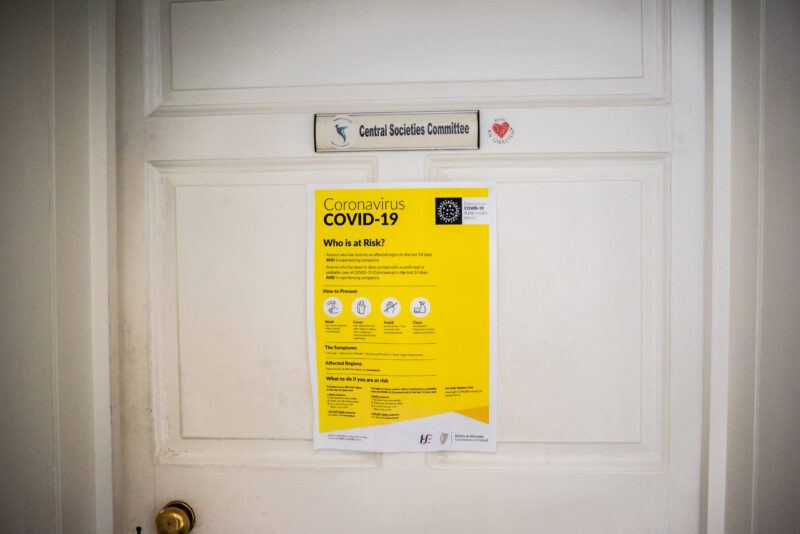Earlier this year, when Ireland was in peak lockdown, I attended a virtual AGM to run for the humble position of third-year representative of DU PsychSoc. I gave my spiel to a patchwork of faces on a laptop screen, and I listened to other people’s speeches, some of which were rather garbled due to poor internet connections.
Technical issues abounded, but by this point in the pandemic, everyone was well accustomed to Zoom and its tendency to throw a tantrum in the middle of a call. In short, it was no skin off anyone’s nose to hold the society’s AGM virtually.
Back in March, the Central Societies Committee (CSC) postponed its own AGM – and, by extension, the election of a new committee – on the grounds that its constitution did not indicate how the committee should proceed if the meeting cannot be held in person.
The CSC spent much of the summer giving much-needed instruction and advice to societies. Emails sent to society committees were blunt about the slim possibility of the freshers’ fair going ahead, and provided assurance that societies’ rapidly changing needs would be met. The committee’s transparency and guidance came when Trinity was far from helpful in quelling students’ uncertainties about the year ahead.
But amidst all of this, the CSC appears to have been in blatant breach of its own constitution – its AGM is now more than six months overdue. During this time, societies had no choice but to hold their own AGMs virtually. The CSC was aware of this, having recommended Zoom as a platform. Furthermore, the committee’s current chair Lee Campbell did not clarify whether any members of the committee were no longer students in Trinity – in which case, the constitution states, they are “obliged to resign immediately”.
The CSC executive denies that the constitution has been breached – it said that “in virtue of Section 8, paragraph 6 [of the CSC constitution] which, in dealing with the general procedures for Motions at a General Meeting, refers to ‘those members of the Committee present, eligible to vote and voting’, and in virtue of Section 9, paragraph 1, subsection (i) which allows the transfer to another of a proxy vote in the instance that the entitled voter cannot attend a General Meeting”.
This, the executive said, means that “General Meetings of the Committee must be a physical gathering of members of the Committee”.
But surely casting a vote at a virtual meeting, on your own behalf, isn’t a proxy vote? If this is the CSC’s logic, does it follow that every society AGM held virtually – and every new committee – is illegitimate?
The email added that “the CSC Constitution does not have specific clauses to deal with the current set of circumstances”, and that “any point of clarification or interpretation of this Constitution which may be required shall be determined by the Executive”.
At this point in the year, it simply is not good enough for the CSC to throw its hands up and say that its constitution doesn’t have a “pandemic procedures” section. Talk of adapting to a “new normal” is so frequent that it has already become a cliché.
If the committee intends to wait until its AGM can be held in person, it won’t be held any time soon if the current limits continue on the number of people permitted to gather together indoors. The CSC’s defence of delaying its AGM is a poor justification that is, at best, hypocritical, at a time when societies have had to make major changes to their plans for the upcoming year – which were made, in many cases, on the CSC’s instruction. At worst, it represents the current committee’s disregard for its own constitution.
One of the sentiments that has become evident over the course of the current pandemic is the importance of leading by example. On both a local and national level, it’s become clear that a prime way to erode public trust is to create a discrepancy between “do as I say” and “do as I do”. The CSC has disregarded its duty to elect a new committee with no reasonable explanation as to why.
Furthermore, if the CSC is seen to be flouting the rules, I don’t see why societies wouldn’t be compelled to do the same. It’s been clear in recent months that public fury ensues when decision makers break the rules that they write – golf gate in Ireland and Dominic Cummings in Britain. Society morale could become very low if the powers that be are doing things one way while telling everyone else differently.
Societies are facing into an incredibly difficult year. They should not have to worry about whether the guidance and instruction being given to them is coming from an illegitimate committee.







